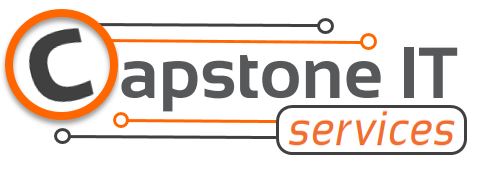While your team may be returning from summer vacations or getting ready for back-to-school routines, cybercriminals are just getting started. August is one of the most active months for phishing scams, and it’s no coincidence. Studies from cybersecurity leaders like Proofpoint and Check Point show a noticeable rise in phishing attempts during the summer months—and businesses that aren’t prepared could be left exposed.
Let’s take a look at why these attacks spike and what you can do to protect your organization.
Why Phishing Scams Surge in the Summer
Cybercriminals love to take advantage of seasonal trends, and August delivers two big opportunities: vacation season and the start of the school year.
-
Vacation-Related Scams: According to Check Point Research, May 2025 saw a 55% increase in newly registered travel-related websites—many of them impersonating trusted brands like hotel chains or Airbnb. Out of 39,000 new domains, 1 in every 21 was flagged as malicious or suspicious.
-
Back-to-School Phishing: Universities and schools are frequent targets this time of year. Cybercriminals pose as official school communication to lure in students and staff. Even if this doesn’t impact your business directly, an employee checking personal email from their work computer could unknowingly invite a threat into your network.
What You Can Do To Stay Secure
AI has become a powerful tool in cybersecurity—but unfortunately, it also helps attackers craft more convincing phishing emails. That means your team needs to be even more vigilant and better trained to recognize potential threats.
Here’s how to boost your defenses:
Think Before You Click
Attackers are getting smarter, and poorly written emails are no longer the red flag they once were. Look beyond spelling errors—check the sender’s full email address and hover over links to inspect where they really lead.
Verify Links
URLs with strange endings like .today, .info, or domains that mimic well-known brands with minor spelling changes are often traps. When in doubt, type the website into your browser yourself instead of clicking links in an email.
Use Multifactor Authentication (MFA)
If someone does manage to get your login credentials, MFA is your last line of defense. It’s one of the easiest and most effective ways to prevent unauthorized access to sensitive data.
Avoid Personal Email on Work Devices
It only takes one click in a personal inbox to compromise your business network. Encourage employees to separate work and personal accounts—and enforce this policy on all company devices.
Secure Public WiFi Connections
If your team travels or works remotely, make sure they use a VPN before connecting to public WiFi. It adds a layer of encryption to help protect sensitive data.
Invest in Endpoint Protection
Ask your IT provider about advanced tools like Endpoint Detection and Response (EDR). These systems monitor your devices in real time, detect suspicious activity, and shut it down fast—before it becomes a disaster.
Final Thoughts
Phishing attacks aren’t just more common in August—they’re more sophisticated, too. The combination of AI-powered scams, vacation distractions, and personal habits can leave your business wide open if you’re not prepared.
At Capstone IT, we help South Florida businesses stay ahead of these evolving threats with smart security tools, employee awareness training, and local support when it matters most.
If you're unsure whether your business is protected against the latest phishing tactics, schedule a quick security checkup with our team today.

